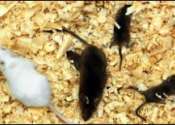Scientists show how adversity dulls our perceptions
Adversity, we are told, heightens our senses, imprinting sights and sounds precisely in our memories. But new Weizmann Institute research, which appeared in Nature Neuroscience this week, suggests the exact opposite may be ...
May 11, 2011
5
0








